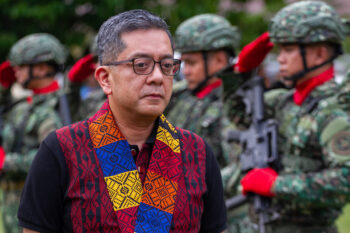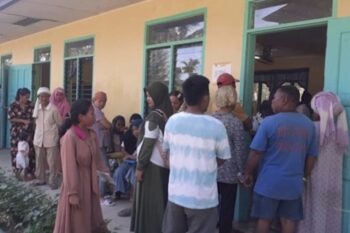CAGAYAN DE ORO CITY (MindaNews/02 November) — The youth can address problems that bedevil politics in the community. With their innate idealism and sense of fairness, unless they’re thoroughly corrupted by wrong values or by the unethical practices of their adult mentors, they can make up for the failures and shortcomings of the officials of their local government.
Being more numerous than the adults, they have the numbers. They can outvote adults on any issue by mobilizing their own rank and file. And being better educated or informed from their wide exposure to myriad media, they have moral ascendancy and can be more persuasive.
They can also serve as the conscience of the community, resisting and defying manipulative tactics, denouncing accustomed use of money to corrupt both old and young.
Along with kindred youth in other communities, they have networks and can act out their ideals in a variety of ways to influence the larger society.
*****
It’s in the youth’s favor that they are young, have no vested interest except desire for a bright future, and are in line to take over. And they have every right to expect adults to turn over to them a well-ordered, moral, and well-governed society.
If they pursue their advocacy with serious and dignified intent, they can even shame adults into behaving ethically.
For instance, the practice of favoritism or nepotism—which fuels political dynasties and graft—persists because no one listens to other adults anymore and the dynastic practitioners are shameless towards fellow adults.
As the foremost victims of dynastic monopoly and greed for power—crowded out of public service careers by surrogates of traditional politicians—the youth can rightly launch a “shame campaign” against dynasties and their abuses and win sizeable public attention.
*****
They would also get a better hearing if they denounce political monopolists for victimizing them and the less wealthy, less privileged, and less connected.
They can as well expose corrupt practitioners of money politics, shameless abusers of public office, violators of their oath of office, and betrayers of the public trust.
Their facile resort to cyber media and networking will create great impact—doing precisely what adult society fails to do, which is to induce loathing and a sense of guilt about crime or wrongdoing.
The decline of public ethics is already overloading our judicial institutions and the capacity of anti-crime agencies. The youth can mitigate this problem through a more imaginative, more potent, and less politically-tainted crusade than the so-called Daang Matuwid gimmick.
*****
They can push back the gains of incorrigible trapos who make our country notorious with their corruption and impunity.
Details on these malevolent trapos and their depredations abound in public records, in cases with the Ombudsman, in the courts, and on various media.
The ineffectual effort of formal institutions (including churches) to promote ethical or moral behavior is something the youth can reinforce; they can well provide alternative approaches to curbing corruption and immorality in their own community or barangay.
At the least, they can hurl back to the faces of adults the lessons dished out to them under split-level conditions—learning that is taught hypocritically or behavior prescribed selectively. They can combat or challenge the adult mentality that says, “Do as I tell you; but not as I do!”
*****
It’s time the adults hear from the youth of our time, just as the 19th Century heard the youthful voices of Jose Rizal, Andres Bonifacio, and their comrades against the abuses of their society.
The thirst for fairness and justice today must be quenched. But it is not a task for adults who, while expecting youngsters to behave ethically, themselves bastardize decency and honesty with their perverse values and practices. They are adults with juvenile habits; they are not leaders but misleaders.
It is these adult malcontents that make our barangays, municipalities, and provinces havens of dynastic rule and corruption. They need to be foiled. How dare they bequeath political greed and corrupt governance to the next generation!
It is reckless and wrong for them to leave their mess for the youth to reform and to straighten out later. They should be made to fix the system now—or banished from politics!—before the next generation takes over.
If this is Mission Impossible, we might as well bow our heads in shame, step aside, and ask the youth to do the fixing now.
It would also provide them an opportunity to make up for the years of failed performance by the Sangguniang Kabataan. Is this realistic and possible?
(Manny is former UNESCO regional director for Asia-Pacific; secretary-general, Southeast Asia Publishers Association; director, development academy of Philippines; member, Philippine Mission to the UN; vice chair, Local Government Academy; member, Cory Govt’s Peace Panel; awardee, PPI-UNICEF outstanding columnist. He is president/national convenor, Gising Barangay Movement Inc. valdehuesa@gmail.com)







